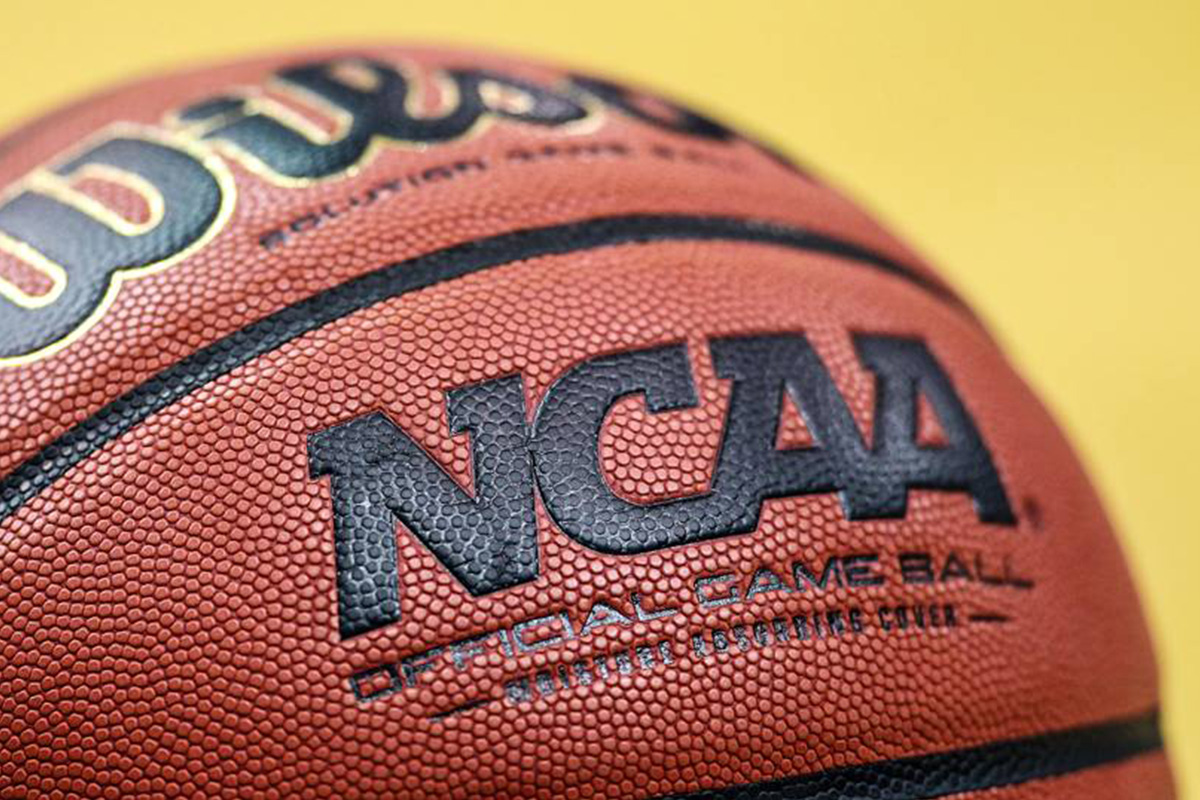Ncaa Sports Betting
College Basketball Odds - Live College Basketball Betting Lines. 08 February, 2021 - Compare and find the best College Basketball spreads and lines anywhere on the internet! Bookmark SBR Picks and/or SBR’s NCAA Basketball page and you’ll never be out of the loop. More than Free College Hoops Picks. SBR is a leader in the sports betting community. NCAA Basketball Tuesday Betting Preview: Bank on Alabama and Texas Tech to Cover SI Gambling analyst Roy Larking focuses on key matchups from the SEC and Big 12 Conference on his Tuesday college.
Earlier this month, NCAA member institution TheUniversity of Colorado announced a five-year agreement with PointsBet, a sports betting site with soon-to-be headquarters in Denver.
“We’re thrilled to have PointsBet as a partner and for the benefits this sponsorship will provide for our student-athletes for years to come,” said Colorado athletics director Rick George in a press release announcing the deal.
Among states that have legalized sports betting since the May 2018 Supreme Court ruling, the Colorado-PointsBet deal is the most prominent joint venture between a high-profile college sports program and a sports wagering operator. The move also runs counter to decades of NCAA-led lobbying, litigation, and policymaking. The NCAA is a membership association and sets rules regulating all aspects of college sports.
Dozens of documents obtained by Legal Sports Report via court dockets and public records requests illustrate how profoundly the University of Colorado’s move could impact, and perhaps torpedo, further efforts by the NCAA and its member schools in shaping policy moving forward.
Here is a retrospective look at some of the on-the-record statements by the NCAA through the decades.
NCAA statements on sports betting
June 26, 1990 – “particularly offensive”
An early version of the bill that became the Professional and Amateur Sports Protection Act (PASPA) was discussed at length during a hearing before the Subcommittee on Patents, Copyrights and Trademarks of the U.S. Senate Judiciary Committee.
NCAA executive Richard Hilliard was blunt during the hearing:
Ncaa Basketball Sports Betting
“I suspect it will not come as any surprise to the Subcommittee to learn that the NCAA is flatly opposed to any form of gambling on intercollegiate sports events.”
Hilliard explained that the NCAA would support any legislation that would “impede” wagering on college sports.

Ncaa Football Sports Betting
“[W]e find particularly offensive any State legislative scheme which legalizes gambling on sporting events,” Hilliard said. “There is no doubt that the institution of State-sponsored gambling schemes would demean not only the integrity of intercollegiate sports, but also would invade the property rights of our member institutions.”
September 12, 1991 – “for the worse”
The House Judiciary Committee’s Subcommittee on Economic and Commercial Law held a PASPA-focused hearing one year later. This time, the NCAA sent its top executive, Richard Schultz, to testify for the record.
“The NCAA’s concern with legalizing gambling is a trickle down impact it can eventually have on collegiate athletics,” wrote Schultz in a prepared statement for the hearing. “Mr. Chairman, gambling and intercollegiate sport do not mix. This is no less true of legalized gambling than it is of illegal gambling. That the schemes are allowed to exist changes the public’s perception, the fans’ perception, and — most important — the athletes’ perception of the game, and in the universal judgment of the college sports community, that change is for the worse.”
Congress overwhelmingly voted in favor of PASPA soon thereafter and it was signed into law by President George H.W. Bush.
April 26, 2001 – close the “loophole”
Ten years later, Senator John McCain led efforts to amend PASPA and ban college sports betting nationwide, even in Nevada where such wagering was exempted under PASPA’s grandfather clause. NCAA executive William Saum testified in strong support of the McCain-sponsored bill.
“We are asking you to take steps to eliminate legal wagering on college competitions in the State of Nevada,” wrote Saum in prepared remarks to the U.S. Senate Committee on Commerce, Science and Transportation. “The NCAA strategy to attack problems with wagering on college sports is multi-focused.
“But we need assistance. We believe the loophole that allows wagering on college sports in Nevada should be closed.”


The PASPA amendment pushed by McCain garnered little support and did not advance to a full vote on the Senate floor.
July 24, 2009 – “harm that cannot even begin to be measured”
The NCAA, along with the NFL, NBA, NHL, and MLB, sued Delaware Governor Jack Markell in 2009, claiming that each league would be irreparably harmed if Delaware expanded its sports wagering options beyond football-themed parlays that had existed for decades.
“The implementation of a comprehensive sports betting scheme in Delaware would irreparably harm professional and amateur sports by fostering suspicion and skepticism that individual plays and final scores of games may have been influenced by factors other than honest athletic competition,” wrote attorneys for the NCAA and the other leagues in a formal complaint filed with the United States District Court in Delaware. “This is a harm that cannot even begin to be measured, let alone compensated by money damages.”
The NCAA and its co-plaintiff leagues prevailed in the litigation against Delaware, preventing the state from implementing its plans.
October 31, 2012 – “common sense … obviously”
Shortly after the NCAA, as the lead plaintiff in the lawsuit that eventually landed at the Supreme Court, sued New Jersey Governor Chris Christie and other state officials to stop the Garden State’s move to legalize sports betting, NCAA president Mark Emmert provided sworn testimony in a deposition.
“So common sense simply dictates that if you have more of that activity going on, obviously it would enhance the, the suspicion that people have that the games are, are being influenced,” said Emmert according to a deposition transcript obtained by Legal Sports Report. Emmert’s response came after being asked what evidence he had to support the NCAA’s claim that it would be irreparably harmed if New Jersey were to legalize sports gambling.
Emmert explained the historical anchor for his conclusion later in the deposition.
“Our argument all along has always been within the NCAA, long before I took this position, that we are opposed to all forms of sports wagering,” Emmert said. “The, the reasons for that are, as I said earlier, that this is clearly a threat to the integrity of intercollegiate athletics.

“We have a, a significant amount of experience, over decades, to demonstrate that that’s the case. And to create more of it simply enhances the threat that it poses to the integrity of games, the impact that it has on our student athletes, and to university reputations.”
What now for Colorado, NCAA?
The NCAA has yet to issue any comment on the Colorado-PointsBet deal. There has been no public policy shift in the NCAA’s position on sports betting or whether such position now departs from certain member schools.
Just two months ago, however, University of Pittsburgh athletic director Heather Lyke told the U.S. Senate Judiciary Committee that “[t]he introduction of legal wagering on intercollegiate athletics will have a corrosive and detrimental impact on student-athletes and the general student body alike.” Lyke urged Congress “to directly address gambling on intercollegiate athletics and prohibit it.”
George appears to disagree. But will the Buffaloes be the only big-time university to enter into a sports betting partnership this academic year?

Don’t bet on it.
Sports Wagering
NCAA rules prohibit participation in sports wagering activities and from providing information to individuals involved in or associated with any type of sports wagering activities concerning intercollegiate, amateur or professional athletics competition. Sports wagering has the potential to undermine the integrity of sports contests and jeopardizes the well-being of student-athletes and the intercollegiate athletics community. It also demeans the competition and competitors alike by spreading a message that is contrary to the purpose and meaning of 'sport.' Sports competition should be appreciated for the inherent benefits related to participation of student-athletes, coaches and institutions in fair contests, not the amount of money wagered on the outcome of the competition.